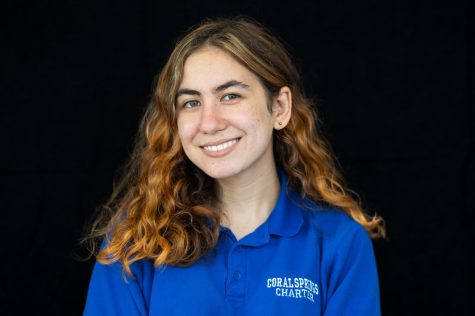An Interview With Zoe Weissman
17 lives were lost as a result of the MSD shooting. This happened right across from Westglades Middle School, where you were at the time. How did this event shape your perspective? And, almost three years later, how would you reflect upon it?
Unfortunately, in my case, I witnessed enough of the shooting to develop PTSD. I was sitting outside at the time the shooting started and wasn’t able to get back into a classroom until the shooting had ended. Surviving that kind of trauma at the age of 12 flipped my whole world upside down. I could barely function in school anymore. To this day, I have to deal with the constant fear of being shot every day I go to school. I also experience vivid flashbacks when something like fireworks triggers me. Although I wish I never had PTSD or even had to deal with a shooting (as I am sure everyone in Parkland feels), it has really opened my eyes to the failures of our government and if anything motivated me to advocate for the next generation of Americans.
In the past, you have done a lot of work with gun violence prevention organizations, including your position as Fund Developer for March for Our Lives Florida. Is there anything you are currently working on to combat gun violence?
I am still heavily involved in March For Our Lives. I am a co-director of the original Parkland chapter and the president/founder of a chapter at my school, American Heritage.
As an individual interested in science and health, how do you plan on using your unique skill set to help combat gun violence in the future?
I believe that gun violence is inextricably linked to health in so many ways. Gun violence is truly an epidemic that has been raging out of control for years in our country. It’s killing thousands of Americans every year. Looking at this issue through the lens of public health allows
us to look for unique perspectives to tackle this issue. I like to think of gun violence as a disease and how we would usually tackle one. To me, that means implementing preventative measures to stop the disease from occuring (background checks, violence intervention programs, AR bans, etc.) as well as reactive measures (like school security).
How can young students who don’t have the power to vote still make a difference in gun violence prevention? For those who want to show support, are there any current programs, events, or initiatives that we can share with our readers?
I joined March For Our Lives right before eighth grade, and I wanted to join so much earlier, but I felt as if I was too young to be taken seriously. That was definitely not the case. At the age of 13, I got to speak at a press conference at the Florida state capitol. Nothing in the world of activism is off limits based on age. Regardless of how old you are, there are so many organizations to get involved in, such as March For Our Lives and Students Demand Action. As for March For Our Lives, you can visit our website and sign up for emails or contact us to get more involved. There are also programs such as the Team ENOUGH Lobbying Collective, which allows teens in Florida and a few other states to virtually lobby at their state capitol’s for gun violence prevention policies.
Is there anything else you would like to share in regards to gun violence?
You never think gun violence is a serious issue until it impacts you. I always knew about school shootings but never realized the destruction they caused. Parkland used to be a tiny town; everyone knows each other, and everyone goes to school together. I used to have to describe where I lived as “30 minutes south of Boca Raton”. Because of gun violence, my life and everyone else who lives in Parkland’s lives will never be the same. Every time I tell someone where I am from, I see the shock in their eyes and the thoughts running through their head. Please get involved in the fight against gun violence, so no more kids have to die, get injured, or suffer through trauma like I have.

Madalen Erez is a senior. This is her fourth year on staff. In her free time, she enjoys reading fantasy novels and taking photos of nature.
